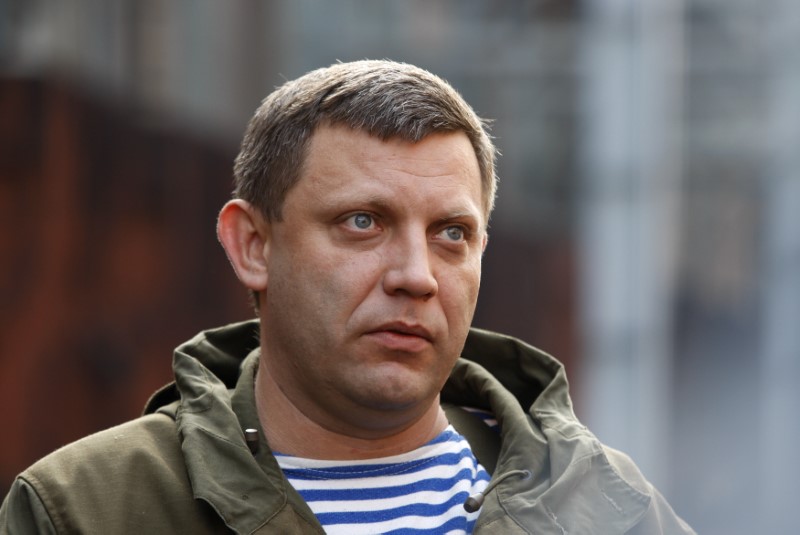KIEV (Reuters) - The main pro-Russian separatist leader in Ukraine said on Friday he would cut economic ties between rebel territory and the rest of the country, following through on an ultimatum to end trade if the government did not halt a rail blockade.
The blockade by an autonomous group of Ukrainian lawmakers and military veterans has stopped rail shipments from separatist-controlled areas, causing economic hardship on both sides of the eastern front line as it has hit coal and steel producers, the regions' main employers.
The government in Kiev opposes the blockade, which the group said on Friday it planned to expand.
"As of now we break all ties with Ukraine," Alexander Zakharchenko, the head of the self-styled Donetsk People's Republic was quoted as saying by separatist website DAN.
"We don't need Ukraine in order to survive and live normally. It is they who need us."
The separatist-run territory occupies only a small part of Ukraine's coal-rich Donbass basin, but it is the main source of the anthracite needed to fuel thermal power plants across Ukraine.
The trade squeeze has highlighted the complicated economic relationship between the two sides and represents a new phase in a periodically violent stand-off that has killed more than 10,000 people in the last three years.
Ukrainian authorities have warned that the country could be hit by rolling blackouts and lost foreign export income of up to $2 billion if rail shipments from separatist territory do not resume.
They have sought to negotiate with the pro-Ukrainian activists, holding off from forcibly breaking up the encampments on rail lines in the Donetsk and Luhansk regions.
The activists argue that trade enriches the oligarchs and fuels the conflict that broke out in April 2014, after a pro-European uprising in Kiev ousted a Moscow-backed president.
On Friday they announced plans to expand the blockade to include some road traffic from separatist-held territory and Russia, which they see as the main adversary for its role in supporting rebels with troops and weapons.
"Russia has occupied our territory and our goal is to close all crossing points," the blockade's main organiser, Anatoliy Vynohrodsky, said in briefing in Kiev.
Vynohrodsky did not say when they planned to expand the blockade.
